You will hear numerous mixed messages about the fundamentals children should have before starting formal schooling. The truth is, all children learn at different paces and in different ways. Teachers are trained to work with children who enter school based on their age or level of development.
Before we get into the fundamentals, parents and carers should consider the age appropriateness of their child before starting formal schooling.
Age Appropriateness
In New South Wales, children need to have turned five by April (private schools) or July (public schools) when commencing Kindergarten. However, all children must be in compulsory schooling by their sixth year. At The Scots College Early Learning Centre, a school-based program for boys 3 years and 4 years of age is offered to parents and carers, as an alternative to long day care. It offers flexible attendance arrangements and Before and After School Care services. For more information about the Early Learning Centre please click here.
Eleven Fundamentals for a Confident Start to School
To determine if your child is ready to start schooling, here are our top 11 fundamentals for a confident start to school.
- Use the toilet independently: Children need to be fully toilet trained to start formal schooling. This includes flushing the toilet and washing their hands properly. Good hygiene practices can be seen in children as young as two and are extremely important life skills to learn.
- Be able to dress and feed themselves: To start school, children need to be confident in being able to dress and feed themselves. This includes putting on their own socks and shoes, as well as looking after their belongings such as hats, water bottles and lunch box.
- Identify numbers and how they are used: Many children can count to 30 by their first year of school. As a parent, you can help them understand how numbers are used in everyday situations, like following a recipe or keeping score in a game.
- Identify and match letters with sounds: By the time they start school, most children know some letters and should be able to identify words that rhyme. This is an indicator of a key aspect of learning to read.
- Know how to recognise their own name: Being able to recognise and write their own name is a valuable skill that will help your child recognise their labelled belongings and begin to explore reading.
- Wonder: The ability to wonder is incredibly important for young children. We want to teach them how to think, not what to think. That way, when they are older and faced with a problem they will have the skills to problem solve and find a solution of their own.
- Identify basic patterns, shapes and colours: These foundational skills will help your child develop essential mathematical skills and knowledge.
- Fine motor skills: While your child does not need to be able to write before they come to school, they do need to have the fine motor strength to hold a pencil. Fine motor strength can be developed through moulding clay and Play-Doh, painting, drawing and threading.
- Gross motor skills: Once children start formal schooling they will need to sit for extended periods of time on the floor or at a desk. Being able to control their bodies is important for them to pay attention and engage with a lesson. Core strength is extremely important for this. Outside play is an easy way to develop these skills.
- Basic social skills: The ability to talk and listen are two skills children will need to engage effectively during lessons at school. They will need to listen to instructions from teachers, listen to their peers and have the confidence to speak up, share ideas and answer questions.
- Follow instructions and work independently: Before starting school children need to be able to listen to and follow instructions, as well as have the ability to work on a task independently for a short period of time.
Be Brave Enough to Say Goodbye
Finally, the last hurdle. Saying goodbye on the first day of school is hard for both children and parents. However, separating positively is an important skill to learn so that your son gets the most out of his schooling. Children are extremely intuitive and pick up when a parent is feeling anxious, worried or apprehensive. Sometimes ‘short and sweet’ is the best way to say goodbye!
To introduce the concept and help you prepare your child for school, here is a book provided by the NSW Education Department, Daisy’s First Day written by Kathryn Ford and illustrated by Janie Frith.
Interested in what a typical day for a Scots Early Learning student looks like? Download a copy of The Scots Journey now to find out.






